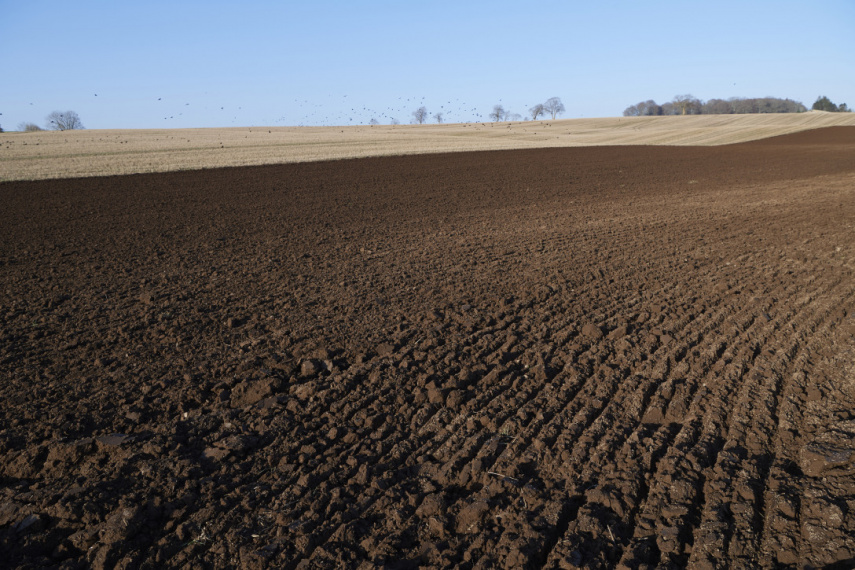
Can an agricultural tenancy exist without a written lease?
Bob McIntosh
In his latest blog, Tenant Farming Commissioner Bob McIntosh looks at whether an agricultural tenancy can exist without a written lease.
In the course of my work, I come across situations where a tenant is occupying land without any form of written lease or agreement. These are generally long-running arrangements which started with a verbal agreement and have carried on without either party feeling the need to enter into a formal written agreement of any kind. In such circumstances the tenant often wants to know whether they have, by default, an agricultural tenancy with all the rights and obligations that come with that.
Each case will be different, but the first issue will be whether the land is being used for an agricultural purpose as defined in the legislation. This often arises where the land is being used to keep horses for recreational purposes. While not all cases coming to court have resulted in the same decision, it seems to be generally accepted that keeping horses in such circumstances is not an agricultural purpose under the legislation, so the tenant, even if the land has been occupied for a long period of time and rent has been paid regularly, does not have an agricultural tenancy and the landlord is likely to be entitled to end the arrangement at a year’s notice.
Where it is clear that the land has been occupied for more than a year (with the landlord’s consent), is being used for an agricultural purpose, rent has been paid regularly, it is clear who the parties to the agreement are and it is clear what land and buildings are included in the arrangement, then it is likely that an agricultural tenancy exists – but on the basis of an unwritten lease. If the arrangement began before 27 November 2003, then such a tenancy would be a ‘secure tenancy’ under the 1991 Agricultural Holdings (Scotland) Act. If the arrangement began after this date, it is still possible that that an agricultural tenancy may exist but it will not be a secure, 91 Act tenancy, as all new secure tenancies entered into after that date must be constituted in writing before they start and must clearly state that the 91 Act applies. In case where the arrangement began after 27 November 2003, the default position is likely to be a Short Limited Duration Tenancy of no more than five years duration.
Where it is clear that a secure agricultural tenancy exits, but there is no written lease, many landlords and tenants are content to continue with that arrangement and the default position with regard to keeping the fixed equipment in good condition is that it is still a joint responsibility. The landlord is responsible for replacement or renewal and the tenant is responsible for maintenance of the fixed equipment provided by the landlord, natural decay and fair wear and tear excepted. Prior to 27 November 2003 it was possible for the landlord, by means of a post lease agreement (PLA), to transfer responsibility for renewal and replacement to the tenant, but such PLAs are very uncommon in the case of unwritten tenancies.
Where the lack of a written lease can be a problem is when – for reasons related to a rent review, or the new relinquishment and assignation provisions, or the pre-emptive right to buy – it is necessary to determine the exact extent of the leased property. Without a written lease this can become a contentious issue and may cause a significant delay in implementing the procedures. Since some of the transactions involved in, for example, the relinquishment and assignation process, are time limited, any delay in determining the extent of the leased property could have adverse consequences. In the case of a secure, 91 Act tenancy, either tenant or landlord can insist on a written lease being prepared but such a lease will only, unless by agreement, contain the basic tenancy rules. Both parties should therefore be careful to consider whether it is best to let sleeping dogs lie or to embark on a process that might result in disagreement or in one of the parties acquiring unwanted liabilities and responsibilities.
If a lease is to be written, normal practice would be for both parties to commission respective solicitors to represent their interests in drawing up the lease. One solicitor cannot take responsibility for the interests of both landlord and tenant, and each party is responsible for taking such advice as they wish. Time should be allowed for both parties to negotiate, agree and understand the terms of the lease, especially where it is agreed that these are more than the basic tenancy rules in the Act. An eagerness on the part of one party to acquire a lease, perhaps to enable a particular transaction to go ahead, may lead to failure to understand or negotiate appropriate lease terms.
It is not always easy to determine whether an agricultural tenancy exists, or to decide whether to ask for a written lease, so any tenant who is concerned about their situation is strongly advised to take legal advice that is appropriate to their own circumstances, as the picture presented in this article is a general one which will not apply in every situation.
If you would like to get in touch about this or any other tenant farming related matter, call 01463 423 300 and leave a message to receive a call back, email tfc@landcommission.gov.scot, or find out more at landcommission.gov.scot.
